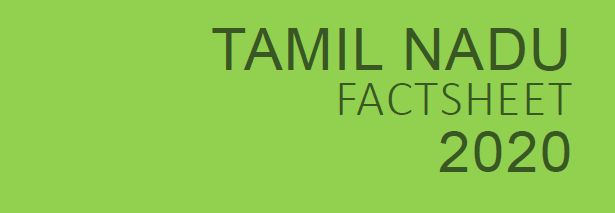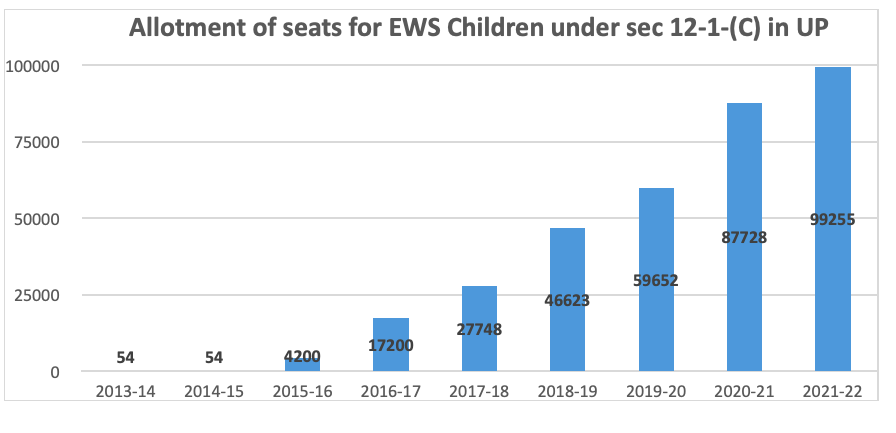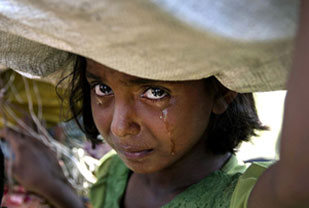Ananya and The EWS Story
Rights And Entitlements


Since 2014, through the efforts of Oxfam India and Red Brigade Trust, 5245 children have been admitted in private schools in 8 districts in Uttar Pradesh under the EWS category of the RTE Act. Ananya is one of them.
Ananya, a 7th standard student of Jagran Public School in Varanasi, has had a turbulent journey in trying to access education. She was unwilling to give up and pursued her goals. Her struggle ultimately paid off and she went on to become an exemplary student.
*
While education can reduce inequality, it is also what is making the society even more unequal. Forms and quality of education (a universal human right) varies for different sections of society. The quality of education is defined by the amount parents can pay for their children. There is evidence that given the opportunity, children from any section of society can excel.
Ananya belongs to the economically vulnerable community. Her father Ajay Patel works as an education activist and mother is a homemaker. She was to be admitted, u/s 12(1)(c) of Right to Education (RTE), in Jagran Public School in Varanasi in 2016. The school objected to her admission; they said her house was 17 kms from school and hence not feasible.
After a lot of struggle and government intervention, she was finally enrolled. After being enrolled in school, she secured the first position in all the exams. After admission, purchasing books was another obstacle as they were very expensive. While the government announced financial aid of Rs 5000 for purchasing books and uniforms, a data error accounting for children in government schools resulted in Ananya being excluded from this scheme. In fact, hundreds of children in Varanasi experienced the same issue.
During COVID-19, children from poor backgrounds were completely left out of the online model of teaching that schools across the country were adopting. During this period, the Jagran Public School removed Ananya from the online education programme since her fees had not been paid; the government was supposed to pay the fee. She was informed that her name was being removed from the school roster. This resulted in a lot of mental and emotional distress for Ananya and her parents. Later a written complaint was filed with the Basic Shiksha Adhikari Office and the District Magistrate. With the latter’s intervention, Ananya was allowed to continue her education. In the year 2020-21, Ananya was felicitated by the District Magistrate for her exemplary performance in academics.
*
For inclusion of children from Economically Weaker Sections (EWS) under RTE Act, Oxfam India and Red Brigade Trust ran relentless campaigns in Uttar Pradesh; low-cost IEC material was developed to inform parents about the RTE Act and educate them about admission processes. Under this campaign, a mobile number was provided to parents from the EWS community, through which they can approach volunteers associated with the campaign. Volunteers supported them by gathering all documents required for admissions, submitting forms and in getting admissions. To build awareness, volunteers organised a series of camps to facilitate admission processes in Lucknow, Varanasi, Agra, Meerut, Ghaziabad, Moradabad, Bareilly and Kanpur.
*
Under the Right of Children to Free and Compulsory Education Act, 2009 (RTE Act), inclusion of EWS children in private schools was stated in Section 12(1)(c) of the Act. As per this clause, 25% of seats are reserved for EWS children at entry level in all affiliated private schools. The expenses are to be borne by the government; the rates for which have been fixed by the state governments in different states.
The government has shown its commitment for inclusion of EWS children in private schools with the objective that if children from economically vulnerable communities will interact with children from economically privileged sections of society, they will learn from each other, which in turn could influence the reduction of inequality in society. However, this cannot be possible until it is being implemented in the way it was planned at the stage of conception. Commitment from private schools and economically privileged parents is essential to the idea.
In Uttar Pradesh, the first government order for admission of EWS children was issued on 3 December 2012. But in this order, there was a clause that in the case of unavailability of seats in government and aided schools admission will be allowed in private schools under Sec 12(1)(c). This was an obstacle for EWS children and parents, which led to zero enrolment in that academic session. So far, the status of implementation of this clause was abysmal.
Activist Ajay Patel (Ananya’s father) filed a PIL in Allahabad High Court seeking court intervention in ensuring the rights of EWS children. In 2016, the court announced their judgement and held the Education Department accountable for its poor implementation of the order and mandated proactive steps to accelerate the admission of EWS children under this clause. Gradually, the admission of EWS children increased during the 2016-17 academic session.
In the academic year 2017-18, the number of unaided private schools was 79,422. Even if a school had an average of 10 seats reserved for EWS children there should be 794,220 seats available for EWS children under section 12(1)(c). The actual number is much more. On the contrary, only 99,255 children were able to get admission under this.

There are several issues associated with the admission of EWS children and accessing discrimination-free education. The State Commission for Protection of Child Rights (SCPCR) is the body responsible for addressing grievances of children and ensure the effective implementation of RTE provisions. On 19 May, Oxfam India and Red Brigade Trust submitted 11 suggestion-points to SCPCR for ensuring the inclusion of EWS children and had discussed each of these points in detail:
📢Oxfam India is now on Telegram. Click here to join our Telegram channel and stay tuned to the latest updates and insights on social and development issues.
Check you latest news


